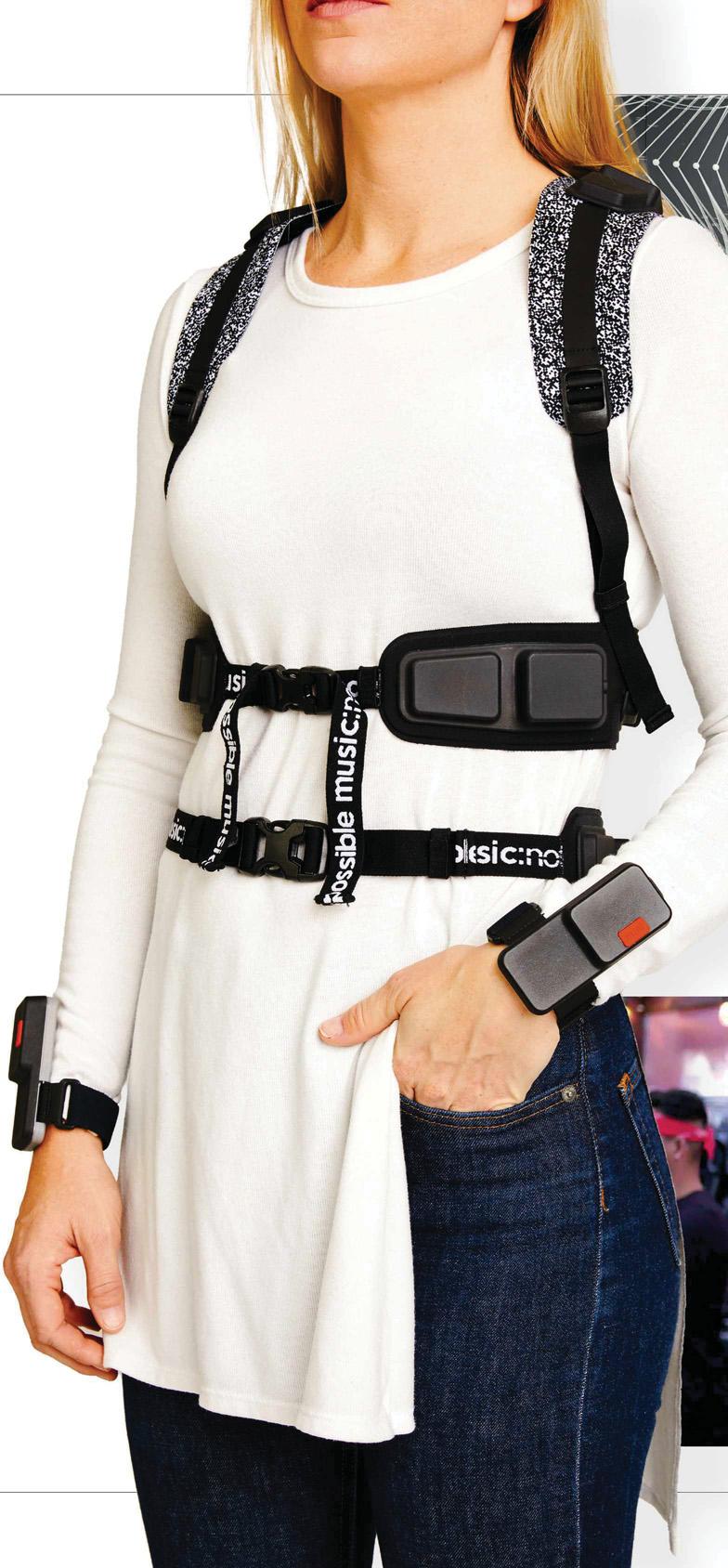
There’s a long history of deaf people going to concerts and attending gigs using items such as inflated balloons or pipes to feel the vibrations of the live performance.
In spite of this, there remains a belief that anyone who is deaf is unable to enjoy live music. But while a deaf person may not be able to hear the sound of the music, they can feel it through the vibrations produced by the powerful speakers being used, or even the instruments themselves if they’re close enough.
The US tech company Not Impossible Labs has seized on this concept and, in collaboration with musicians, venues, and production companies, built on it to create a haptic vest that makes these vibrations more accessible to both deaf and hearing music lovers.
GETTING SUITED UP
"Nothing is impossible forever," boasts the home page of notimpossible.com proudly in large font. A bold claim, but one that matches the unique nature of the products the company is working on.
Led by founder Mick Ebeling, Not Impossible Labs is built around innovation that provides accessibility where it wasn't previously available. While there's a lot of development occurring in the world of accessibility tech right now, Not Impossible Labs takes an unconventional route.
Whether it's helping blind skateboarders ride via echolocation; creating navigational 'super-hero' suits for a deaf and partially blind children, or something as simple as text messaging service that helps local people going hungry find food, Not Impossible has learned to think outside the box.
Denne historien er fra November 2023-utgaven av BBC Science Focus.
Start din 7-dagers gratis prøveperiode på Magzter GOLD for å få tilgang til tusenvis av utvalgte premiumhistorier og 9000+ magasiner og aviser.
Allerede abonnent ? Logg på
Denne historien er fra November 2023-utgaven av BBC Science Focus.
Start din 7-dagers gratis prøveperiode på Magzter GOLD for å få tilgang til tusenvis av utvalgte premiumhistorier og 9000+ magasiner og aviser.
Allerede abonnent? Logg på

COULD MARINE CLOUD BRIGHTENING HELP US FIGHT CLIMATE CHANGE?
The theory behind marine cloud brightening is that brighter or whiter clouds reflect more sunlight back into space.

IS IT SAFE TO RUN EVERY DAY, OR SHOULD I DITCH MY RUN STREAK TO SAVE MY KNEES?
A running streak, where you run every day without taking rest days, can be highly motivating and beneficial for overall fitness. Running is great cardiovascular exercise and isn't to be discouraged (and finding a routine with some consistency is great). Getting a bit of exercise as often as possible is also hugely beneficial for your mental health.

WHAT MAKES THE MEDITERRANEAN DIET SO GOOD FOR US?
The Mediterranean diet may help you live longer, especially if you also adopt the lifestyle of people living near the Med during the 1950s.

WHAT IS MEXICO'S BLUE HOLE?
The world's deepest blue hole (marine sinkhole) lies off the coast of Mexico's Yucatán Peninsula. It's at least 420m (1,378ft) deep, but explorers still haven't found its bottom.

HOW CAN I TELL IF I'VE GOT HIGH CORTISOL LEVELS?
Cortisol is a hormone produced by glands in our bodies called the adrenal glands, which sit above the kidneys. It plays a critical role in various bodily functions, including regulating metabolism, reducing inflammation and helping the body respond to stress. While essential for our health, chronic elevation of cortisol levels can lead to several issues.

THE LUNGFISH
In 1836, European scientists discovered a peculiar animal from the River Amazon that they struggled to identify. Its eel-like body was a few feet long and its air-filled lungs persuaded anatomists it must be a reptile.

ARE WE THE ONLY SPECIES TO HAVE BEEN THROUGH A STONE AGE?
The Stone Age might conjure up images of early humans, sitting around a campfire or hunting prehistoric beasts, but evidence shows that we're not the only species that has learned how to work with stone tools. Wild chimpanzees (Pan troglodytes) use stone tools to crack open nuts.

Should we scrap daylight saving time?
Most of us look forward to the extra hour we get in bed every October, but researchers argue that changing the clocks twice a year harms our health

THE INTERNET OF ANIMALS
SCIENTISTS ARE USING ELECTRONIC TAGS AND SATELLITES TO TRACK WILD ANIMALS AND CREATE A DATA NETWORK THAT COULD HELP US ADDRESS THE BIODIVERSITY CRISIS

MUSIC FOR A DISTRACTED GENERATION
The number of things competing for our attention is often overwhelming. Can dreamy soundscapes created with neuroscience help our bewildered brains to concentrate?